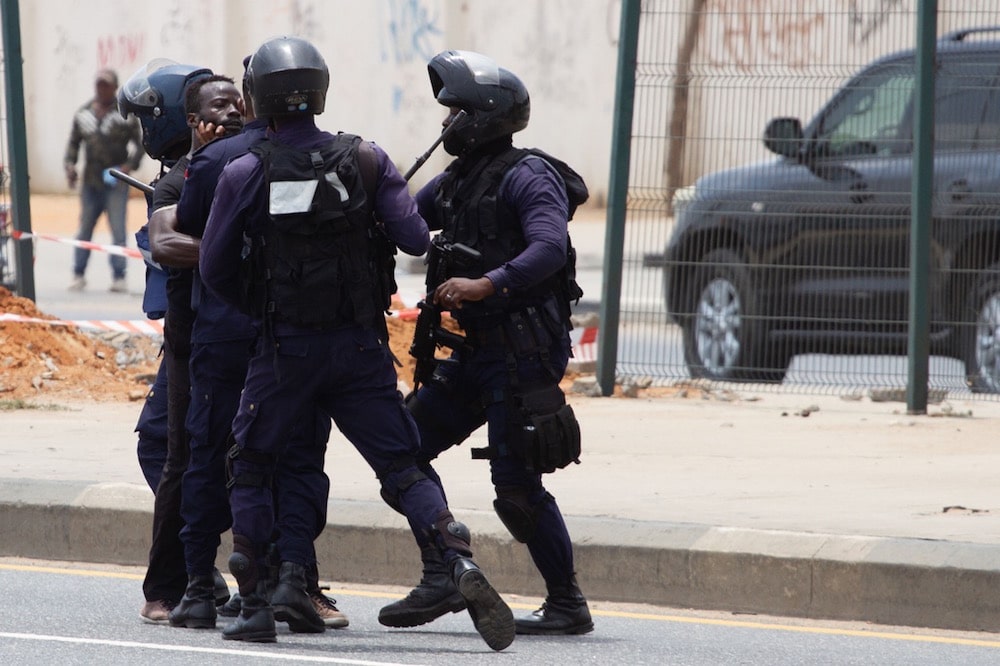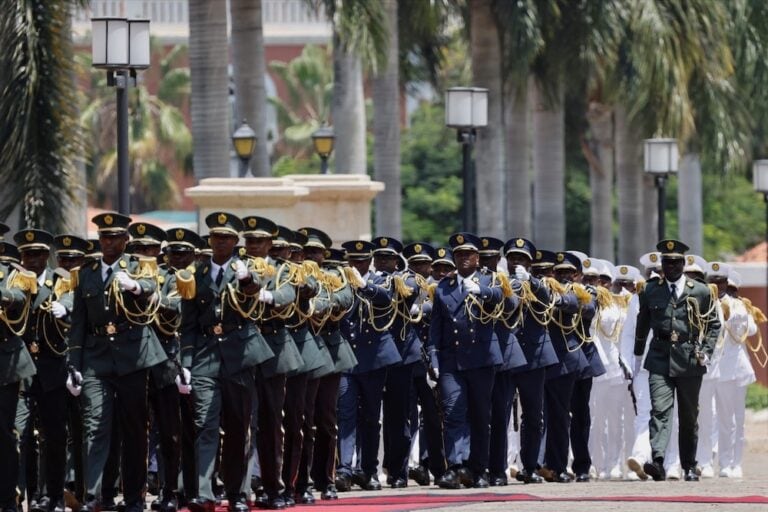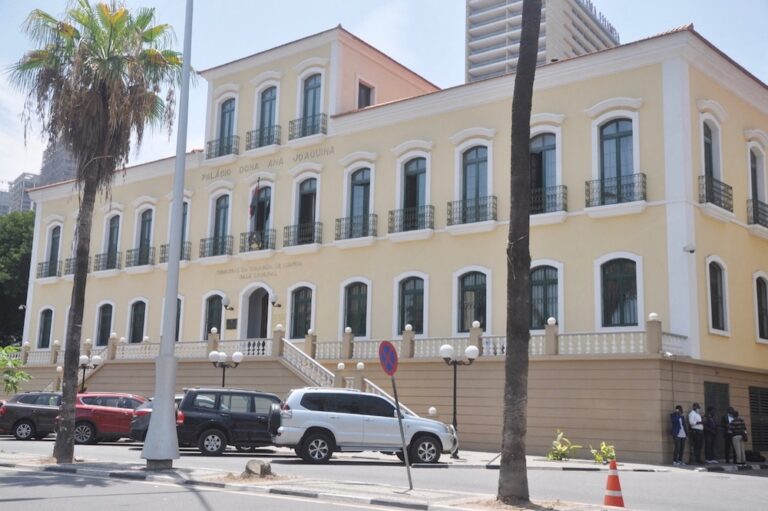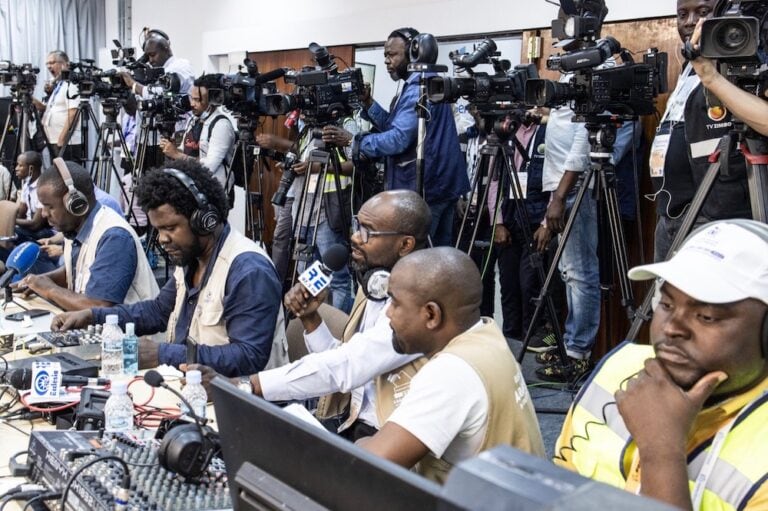Radio journalist Alfredo Kuito is hospitalised after Angolan police unleash dogs on protesters in Ondijva.
This statement was originally published on rsf.org on 17 February 2021.
Reporters Without Borders (RSF) is outraged to learn that an Angolan radio reporter ended up in hospital after being badly bitten by a police dog while interviewing protesters in Ondjiva, the capital of the southern province of Cunene. The police officers responsible for unleashing the dog on him must receive an exemplary punishment, RSF said.
Alfredo Kuito, a reporter for Catholic Church-run Rádio Ecclésia, Angola’s oldest privately-owned radio station, was covering a small civil society protest against the government on 5 February when one of the dogs let loose by the police to disperse the protesters bit his leg through his jeans, inflicting injuries requiring hospital treatment.
“The police unleashed the dogs as I was conducting interviews and was clearly identifiable as a journalist by the Radio Ecclésia vest I was wearing,” Kuito told RSF. When RSF reached provincial police commander Leitão Ribeiro, he gave a sanitized version of the events, claiming that the dog only “scratched” Kuito when passing close to him.
“The size of the tear to this journalist’s jeans and injuries to his leg are clear evidence of a very brutal attack and a completely arbitrary use of force,” said Arnaud Froger, the head of RSF’s Africa desk. “This was an appalling attack and it is unacceptable for the police to minimize its importance. Three years after President José Eduardo dos Santos’ departure, the level of abuses against journalists is still high. If the new authorities want the situation to evolve, they cannot dispense with a serious investigation into this incident leading to exemplary sanctions for those responsible.”
This is not the first time journalists have been intimidated or attacked during protests in Angola. At least seven journalists were arrested, detained or roughed up in the capital, Luanda, on 24 October during a demonstration against corruption, unemployment and the postponement of the local elections that were supposed to have been held in 2020. Four journalists were briefly detained during a protest two weeks later against inflation and poor living conditions.
Three years after João Lourenço became president, journalists are still harassed and persecuted and the media landscape continues to be marked by a lack of pluralism. The state’s grip on the media has even increased since July 2020, with the government gaining effective control over several media outlets that already had public funding, including TV Zimbo, which used to be the leading commercial TV channel, Radio Mais and the newspaper O País.
Angola is ranked 106th out of 180 countries in RSF’s 2020 World Press Freedom Index.



